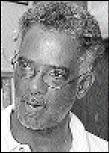
Heaven
Sacha Walters, Staff Reporter
There is a concern that splash blending of ethanol-based fuel may lead to inconsistencies in the product and may have a negative effect on vehicles.
Trevor Heaven, vice-president (VP) of the Jamaica Gasolene Retailers' Association, said the manual method of blending both E10 87 octane and E10 90 octane fuels practised by some gasolene retailers leaves something to be desired.
Splash-blending occurs when marketers purchase gasolene and ethanol separately, then the ethanol is splashed into a tanker truck or a storage tank with gasolene to combine them.
"It lends itself to inaccuracies and inconsistencies," said Heaven in explaining that the ratio of ethanol to gasolene may be compromised. One negative implication is having an excess amount of ethanol.
According to the VP, the ethanol-based fuel from the national refinery, Petrojam, does not go through this process. A controlled system is used to ensure proper ratio of gasolene and ethanol. However, he disclosed that not all retailers get their fuel from Petrojam.
Petrojam product
"All the local marketers get their product from Petrojam," he said.
"Other overseas-based companies like Chevron, Cool Group and Shell do their own import into Montego Bay and do their own gas blending," he continued.
Heaven said this came about out in a need to meet the deadline for the November 1 islandwide roll-out for E10.
"What's been happening is that, because some of the marketers had to meet the deadline, they were not able to complete the installation of that system (automatic process control system) so what they do is splash-blending," Heaven said.
Heaven was not sure if there is a deadline for these marketers to begin using an automatic process-control system.
Chief executive officer (CEO) for Cool Group and Shell, Rodney Davis, said, how-ever, his company does not practice this method.
"We don't do the splash method," the CEO said.
Several attempts to get a comment from representatives of Chevron Caribbean SRL, distributors to Texaco service stations, were unsuccessful.
John Allen, a Texaco service station retailer in Portmore, said he was unaware of what process was used to blend the gasolene supplied to him.
"We sell what is given to us," Allen said.
George Douglas, inventor with the Innovator Association, a group with the Scientific Research Council, said excess ethanol makes a vehicle sluggish and can cause them to shut down. And he believes there is room for product improvement.
"The sugar they have in this new gas is not properly processed. It needs to be more purified like how the alcohol is purified," Douglas said.
He said through his experiments, the gas leaves sugar sediments which, over time, harden to form a thick liquid. This, he said, is transferred to other parts of the vehicle, specifically the carburettor or the throttle body.
"It is a good thing, trust me," he said, in reference to E10-based fuel. "But it needs to be processed more," he added.